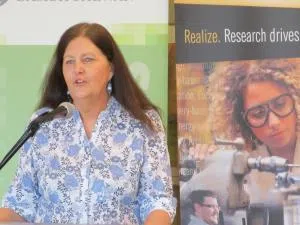
Research set to look at breathing problems on First Nations
Helping people on First Nations breathe easier is the focus of a study announced today.
The University of Saskatchewan, University of Regina and two First Nations communities are working together for the next five years as part of a research project looking at breathing problems.
The researchers will spend time at the Beardy's and Okemasis First Nation and the Montreal Lake Cree Nation studying how to prevent high rates of issues such as lung disease, bronchitis, asthma and tuberculosis.
“In First Nations communities, everybody knows about diabetes and it being a huge issue … but there are actually more people hospitalized with respiratory illnesses than there are with diabetes,” said Jo-Ann Episkenew, a co-principal investigator with the study.


